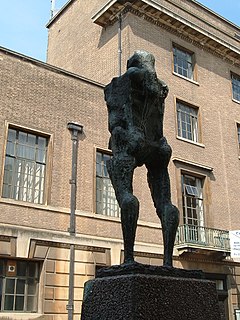A Quote by Ella Wheeler Wilcox
Love is the centre and circumference; The cause and aim of all things--'tis the key To joy and sorrow, and the recompense For all the ills that have been, or may be.
Related Quotes
The world has no circumference. It would certainly have a circumference if it had a centre, in which case it would contain within itself its own beginning and end; and that would mean that there was some other thing which imposed a limit to the world - another being existing in space outside the world. All of these conclusions are false. Since, then, the world cannot be enclosed within a material circumference and centre, it is unintelligible without God as its centre and circumference.
Behind joy and laughter there may be a temperament, coarse, hard and callous. But behind sorrow there is always sorrow. Pain, unlike pleasure, wears no mask. ... For this reason there is no truth comparable to sorrow. There are times when sorrow seems to me to be the only truth. Other things may be illusions of the eye or the appetite, made to blind the one and cloy the other, but out of sorrow have the worlds been built, and at the birth of a child or a star there is pain.
The problem of reconciling human suffering with the existence of a God who loves, is only insoluble so long as we attach a trivial meaning to the word "love", and look on things as if man were the centre of them. Man is not the centre. God does not exist for the sake of man. Man does not exist for his own sake. "Thou hast created all things, and for thy pleasure they are and were created." We were made not primarily that we may love God (though we were made for that too) but that God may love us, that we may become objects in which the divine love may rest "well pleased".
The difference between shallow happiness and a deep, sustaining joy is sorrow. Happiness lives where sorrow is not. When sorrow arrives, happiness dies. It can't stand pain. Joy, on the other hand, rises from sorrow and therefore can withstand all grief. Joy, by the grace of God, is the transfiguration of suffering into endurance, and of endurance into character, and of character into hope--and the hope that has become our joy does not (as happiness must for those who depend up on it) disappoint us.




































